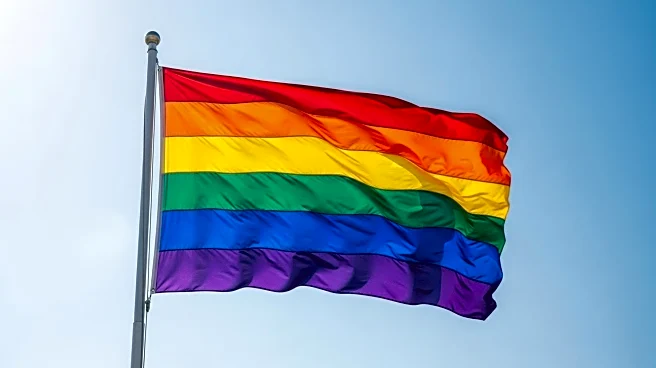What's Happening?
A Pride march in Belgrade, Serbia, took place on Saturday, condemning police violence against antigovernment protesters. The event was organized in support of university students who have been leading demonstrations against President Aleksandar Vucic. The march was marked by a commemorative silence, reflecting the ongoing protests that began in November following a tragic accident at a train station. The protests have been fueled by allegations of corruption and negligence. The Serbian government has responded with increased police presence and crackdowns, including the dismissal of educators and deployment of police in academic institutions. Recent protests in Novi Sad were met with tear gas and resulted in injuries and arrests. Despite past violence against Pride events, the march proceeded without incident, highlighting the challenges faced by Serbia's LGBTQ+ community in a conservative society.
Why It's Important?
The Pride march in Serbia underscores the intersection of LGBTQ+ rights and broader political dissent in the country. The ongoing protests against President Vucic reflect widespread dissatisfaction with government corruption and authoritarian practices. The government's response, including police violence and crackdowns, raises concerns about human rights and democratic freedoms in Serbia. The situation is significant for the European Union, as Serbia is a candidate for membership, yet struggles with issues of governance and minority rights. The march also highlights the persistent challenges faced by the LGBTQ+ community in Serbia, where legal protections and societal acceptance remain limited.










